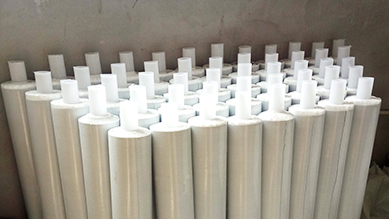Understanding Insulation Cotton Tape Properties, Uses, and Benefits
Insulation cotton tape, often recognized for its versatility and effectiveness, plays a critical role in various applications, particularly in electrical insulation and thermal management. This specialized tape is manufactured from high-quality cotton that is treated to enhance its insulating properties. The primary purpose of insulation cotton tape is to provide electrical insulation as well as thermal resistance, making it an essential component in many industries, from automotive to electronics.
One of the most compelling features of insulation cotton tape is its excellent dielectric strength. It can withstand significant voltage without conducting electricity, which makes it indispensable in electrical applications. This property helps prevent short circuits and electrical failures, ensuring the safety and reliability of electrical installations. Moreover, insulation cotton tape is often used to wrap wires and cables, providing an additional layer of protection against moisture, dust, and mechanical damage.
In addition to its electrical insulating properties, insulation cotton tape also boasts remarkable thermal resistance. This characteristic allows it to perform efficiently even in high-temperature environments. Insulation cotton tape can be used to insulate pipes and equipment that operate under extreme temperatures, safeguarding against heat loss and improving energy efficiency. With rising energy costs and increasing environmental consciousness, the need for effective thermal insulation has never been more critical.
insulation cotton tape

The applications of insulation cotton tape extend beyond electrical and thermal insulation. It is widely used in the automotive industry for insulating wires and components, ensuring optimal functionality and safety in vehicles. Similarly, in the HVAC industry, insulation cotton tape is employed to wrap ductwork and pipes to minimize heat loss, contributing to a more energy-efficient system. Additionally, it finds use in the manufacturing of household appliances, molding and joining components seamlessly while providing insulation where needed.
Another advantage of insulation cotton tape is its ease of use. The tape is flexible, allowing it to conform to various shapes and surfaces. This adaptability makes it ideal for applications requiring intricate wrapping and insulation. It can be easily cut to the desired size, and its self-adhesive backing ensures that it adheres securely to surfaces without the need for additional adhesives. This simple application process not only saves time but also enhances productivity, making insulation cotton tape a favorite among professionals.
Furthermore, insulation cotton tape is typically resistant to chemicals and moisture, which makes it suitable for use in harsh or variable environments. This resistance ensures longevity and reliability, further enhancing its desirability for many industrial applications. Whether it’s protecting wiring in a damp environment or ensuring the integrity of insulation in exposure to various chemicals, insulation cotton tape rises to the challenge.
In conclusion, insulation cotton tape is a multifaceted tool with significant implications across various industries. Its excellent insulating properties, adaptability, and ease of use contribute to an array of applications that improve safety, efficiency, and performance. As industries continue to evolve and adapt to new technologies and sustainability practices, the importance of effective insulation materials, such as insulation cotton tape, will undoubtedly grow. Understanding its benefits and applications allows businesses and individuals to make informed decisions, ensuring that their projects meet the highest standards of safety and efficiency.
-
XIANGFAN Rubber Tape-Ultimate Solutions for All Your Insulation NeedsNewsJun.24,2025
-
XIANGFAN Rubber Tape-Protection for Industrial and Residential ApplicationsNewsJun.24,2025
-
XIANGFAN Rubber Tape: Superior Safety and Sealing for Demanding EnvironmentsNewsJun.24,2025
-
XIANGFAN Rubber Tape: Reliable Solutions for Every Electrical ChallengeNewsJun.24,2025
-
XIANGFAN Electrical & Industrial Tape: Powering Reliability Across IndustriesNewsJun.24,2025
-
XIANGFAN Electrical & Industrial Tape: Excellence in Every ApplicationNewsJun.24,2025
